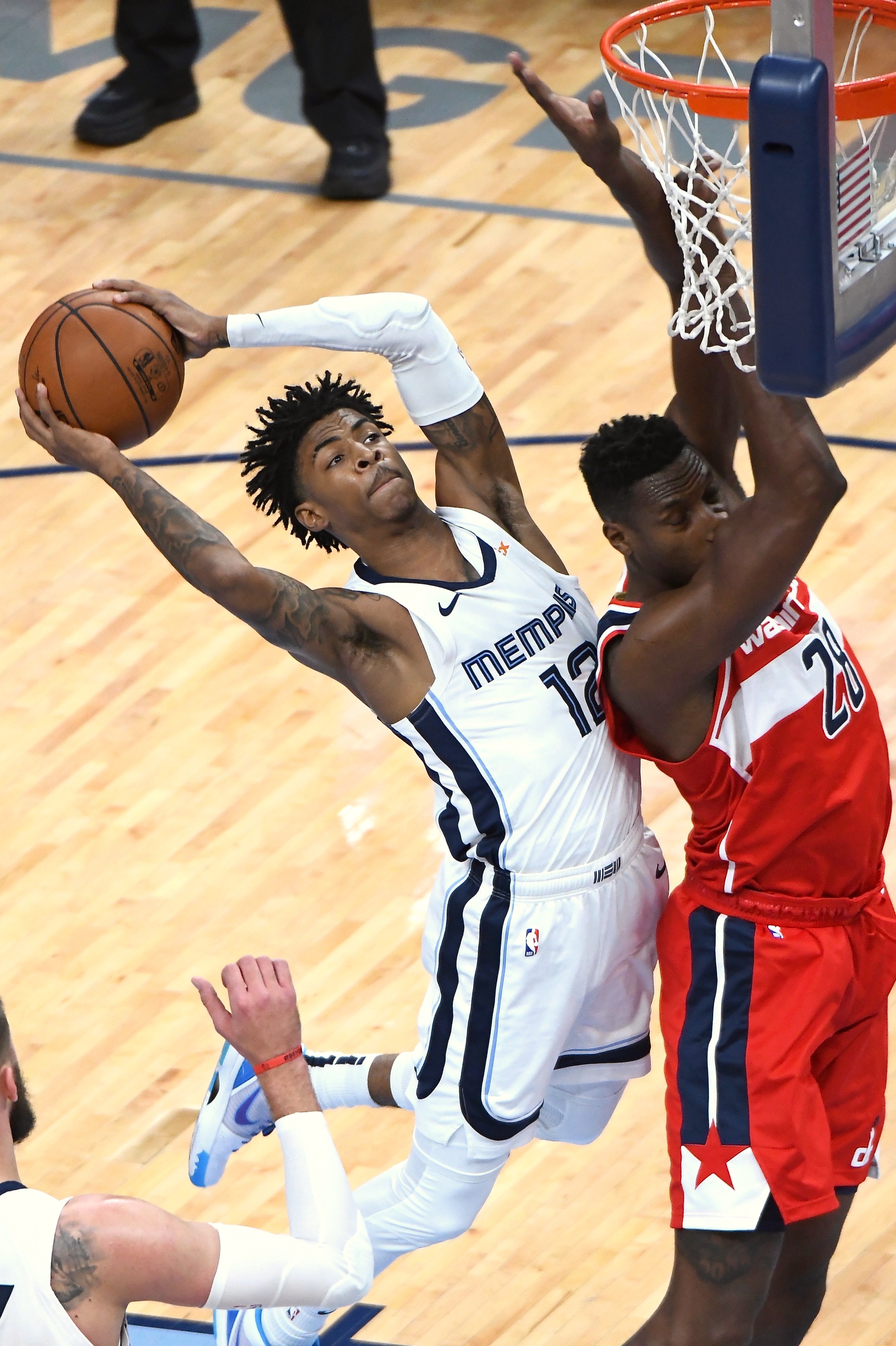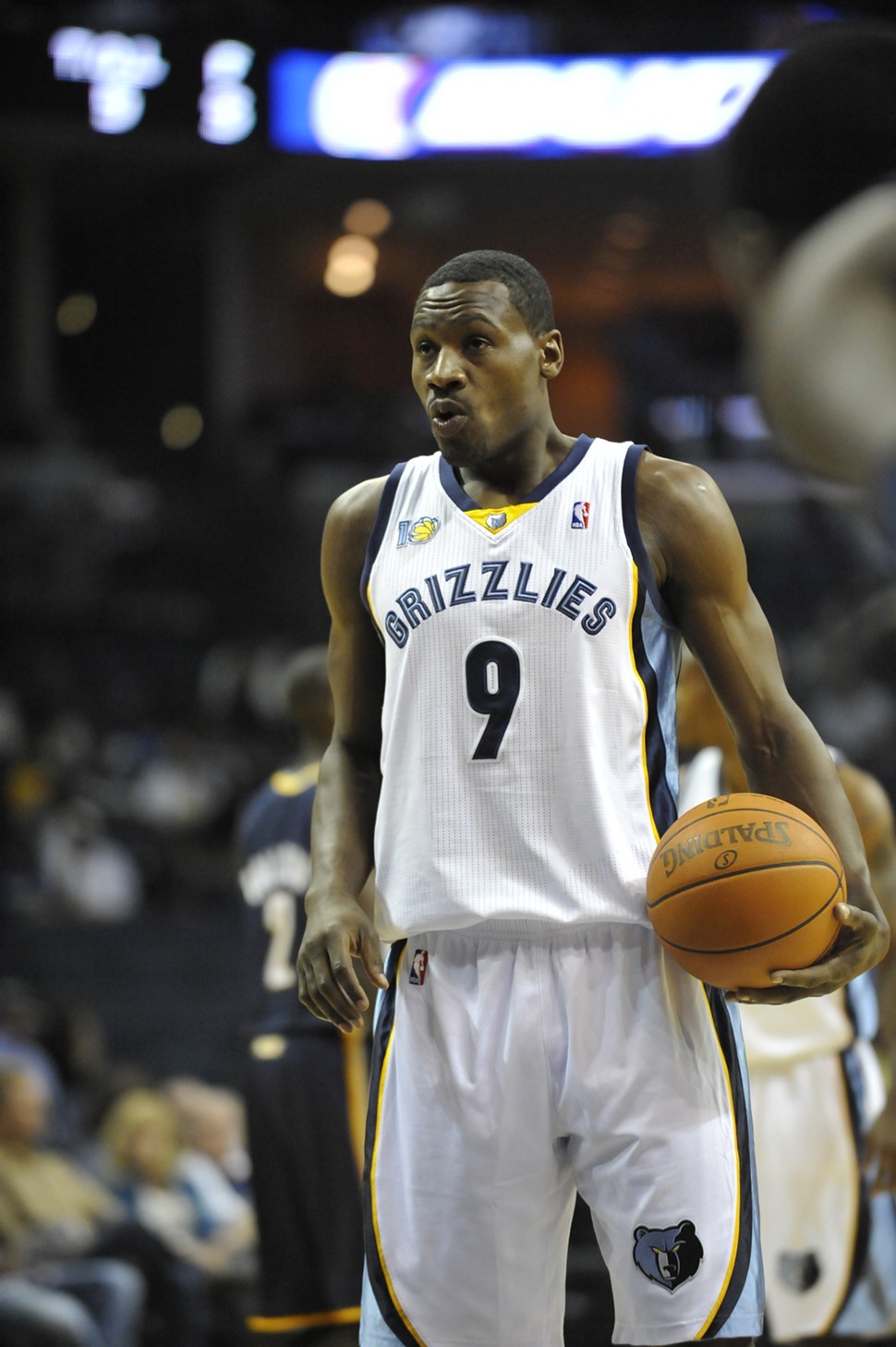I went to bed angry Sunday night for the first time in months. Truly pissed off. Having waited more than four months to see my hockey team of choice — the Stanley Cup-champion St. Louis Blues — play a meaningful game, I watched them lose their opening playoff tilt by the narrowest margin possible in a timed contest. The Colorado Avalanche scored the game winner with a tenth of a second on the clock, and it took almost 10 minutes of video review to confirm that tenth of a second existed. Infuriating, that ice hockey game played in August.
And damn, did the anger feel good.
 Larry Kuzniewski
Larry Kuzniewski
Ja Morant
For the first time since the novel coronavirus changed our planet — at least that part occupied by the United States — in mid-March, we have a packed sports calendar. The NBA has resumed its season with 22 teams each playing eight “seeding games” in Orlando, a one-city “bubble” designed and operated to contain that insidious virus and still provide televised basketball at its highest level.
Likewise, the NHL has opened its postseason with two bubble cities, both north of our border: Edmonton and Toronto. If you like sticks and pucks, you can turn on the NBC Sports network today — a Monday in August – and watch live playoff hockey for more than 12 hours, a total of six games to be played (starting with the New York Rangers and Carolina Hurricanes at 11 a.m. central). This is a new, if disorienting, form of bliss.
Major League Baseball is trying, too. Instead of localized, condensed play within one or two bubbles, MLB is trying to coordinate 30 mobile bubbles — one for each team — and present a 60-game regular season followed by an expanded postseason. And it’s not working entirely, not if you ask the Miami Marlins or St. Louis Cardinals. The two National League franchises have each been locked down after virus outbreaks, quarantined in hotels while rapid testing measures just how many players or staff in traveling parties of more than 50 carry the contagion. And let me tell you, the only thing worse than no pandemic baseball is pandemic baseball with your favorite team not allowed to play. It’s waking up on Christmas morning with gifts under the tree . . . for everyone but you.
It still feels good. For more than 100 days, sports fans have pined for the “welcome distraction” of games and scores to track. Well, guess what? Some of that distraction isn’t welcome in normal circumstances: a blown lead, a narrow loss, a game-changing call that goes against your team. It purely stinks. And it lingers. In all the right ways.
The Memphis Grizzlies lost their first two of eight seeding games as they cling to the final (eighth) playoff spot in the Western Conference. They lost to a pair of teams — Portland and San Antonio — below them in the standings, teams unlikely to catch Memphis for a postseason berth . . . unless the Griz allow them. Ja Morant and Jaren Jackson Jr. are as electric as any young tandem in the league, and they both had moments over the weekend, Jackson burying a late-game three-pointer against the Spurs that forced overtime . . . until it didn’t (thanks to a buzzer-beating foul that led to game-winning free throws for the bad guys). What if we’ve waited all this time to see our Grizzlies, and the “show” becomes a bubbled-season collapse into the draft lottery? (Memphis plays New Orleans Monday, then will face five playoff teams. Should the Grizzlies make the postseason, they will have earned it.)
More than 1,000 Americans are dying each day from COVID-19. The U.S. president, here in August, is calling into question the very lifeblood of democracy: our voting system. Children and teachers from coast to coast are wondering if they’ll become the lab rats for a “return to normal” no one feels comfortable defining. Times are still really, really tough. But we have sports again, at least a version. Justin Thomas is now a Memphian for life, his win in the World Golf Championships-FedEx St. Jude Invitational highlighting the beautiful TPC Southwind — and countless tributes to St. Jude Children’s Research Hospital — for a national TV audience, including the thousands of Memphis fans forced to watch from their living rooms. It felt good, and it felt right, watching Thomas barely hold off defending champ Brooks Koepka.
And even when sports don’t feel right — when the game-winning goal is scored by a villain — it still feels good. Let’s stay healthy, and let’s play on.
